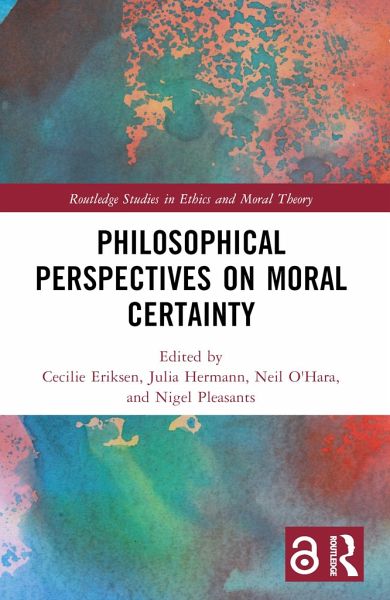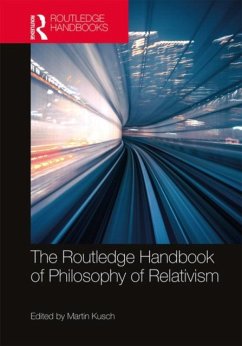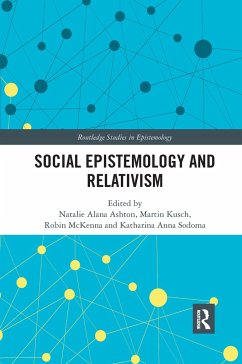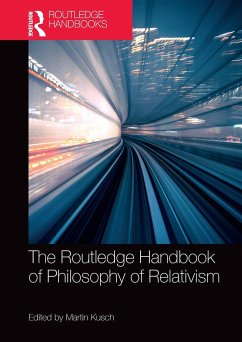
Philosophical Perspectives on Moral Certainty
Versandkostenfrei!
Versandfertig in 6-10 Tagen
43,99 €
inkl. MwSt.
Weitere Ausgaben:

PAYBACK Punkte
22 °P sammeln!
Moral certainty refers to those aspects of morality - moral acting, feeling, and thinking - that are beyond doubt, explanation, and justification. The essays in this book explore the concept of moral certainty and its application and usefulness in contemporary moral debates.The notion of moral certainty, which is inspired by the philosophy of Ludwig Wittgenstein, is emerging as a key reference point in contemporary moral philosophy. An investigation into the implications of moral certainty is called for, given that so many discussions in moral philosophy concern the possibility of justifying o...
Moral certainty refers to those aspects of morality - moral acting, feeling, and thinking - that are beyond doubt, explanation, and justification. The essays in this book explore the concept of moral certainty and its application and usefulness in contemporary moral debates.
The notion of moral certainty, which is inspired by the philosophy of Ludwig Wittgenstein, is emerging as a key reference point in contemporary moral philosophy. An investigation into the implications of moral certainty is called for, given that so many discussions in moral philosophy concern the possibility of justifying our moral beliefs. The concept of moral certainty also feeds directly into the emerging field of hinge epistemology. The chapters in this volume tackle the following issues: meta-questions around whether and how we can make sense of the concept of moral certainty; the role of moral certainty in contemporary debates on gender, racism, bias, and historically unjust practices; ways in which radical change in society engendered by new technologies might affect moral certainties; and the role of the notion of moral certainty in the debates on free will and moral responsibility.
Philosophical Perspectives on Moral Certainty will appeal to researchers and advanced students working on ethics and moral philosophy, epistemology, philosophy of technology, and Wittgenstein.
The notion of moral certainty, which is inspired by the philosophy of Ludwig Wittgenstein, is emerging as a key reference point in contemporary moral philosophy. An investigation into the implications of moral certainty is called for, given that so many discussions in moral philosophy concern the possibility of justifying our moral beliefs. The concept of moral certainty also feeds directly into the emerging field of hinge epistemology. The chapters in this volume tackle the following issues: meta-questions around whether and how we can make sense of the concept of moral certainty; the role of moral certainty in contemporary debates on gender, racism, bias, and historically unjust practices; ways in which radical change in society engendered by new technologies might affect moral certainties; and the role of the notion of moral certainty in the debates on free will and moral responsibility.
Philosophical Perspectives on Moral Certainty will appeal to researchers and advanced students working on ethics and moral philosophy, epistemology, philosophy of technology, and Wittgenstein.














